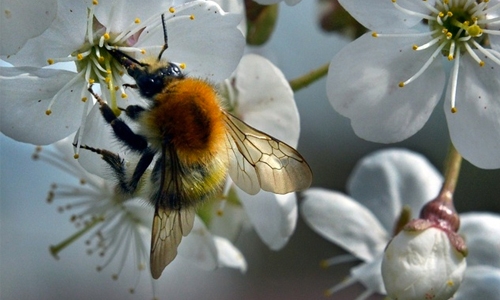Decline of bees, other pollinators, threatens crop output
Kuala Lumpur : Populations of bees, butterflies and other species important for agricultural pollination are declining, posing potential risks to major world crops, a UN body on biodiversity said Friday.
"Many wild bees and butterflies have been declining in abundance, occurrence and diversity at local and regional scales in Northwest Europe and North America," said an assessment by the Intergovernmental Science-Policy Platform on Biodiversity and Ecosystem Services (IPBES).
It said declines had also been detected elsewhere in the world and that possible causes include habitat loss, pesticides, pollution, invasive species, pathogens and climate change.
The report by the IPBES, which was established under UN auspices in 2012 to assess the state of ecosystems and biodiversity, stopped short of declaring a full-scale threat to food supplies.
But it stressed the importance of protecting pollinators to ensure stable fruit and vegetable output, amid concern over the challenge of feeding the world's growing population in coming decades.
It said animal pollination is directly responsible for between five and eight percent of global agricultural production by volume, amounting to between $235 billion and $577 billion worth of annual output.
In addition, more than three-quarters of the "leading types of global food crops" rely to some extent on animal pollination for yield and quality.
"Pollinator-dependent species encompass many fruit, vegetable, seed, nut and oil crops, which supply major proportions of micronutrients, vitamins, and minerals in the human diet," the IPBES said.
Pollination is the transfer of pollen between the male and female parts of flowers to enable reproduction.
The assessment is the work of nearly 80 scientists from around the world and was released at an IPBES meeting in Kuala Lumpur.
It is the first report by the four-year-old group, which is considered the biodiversity equivalent of the UN-organised Intergovernmental Panel on Climate Change (IPCC).
Related Posts

